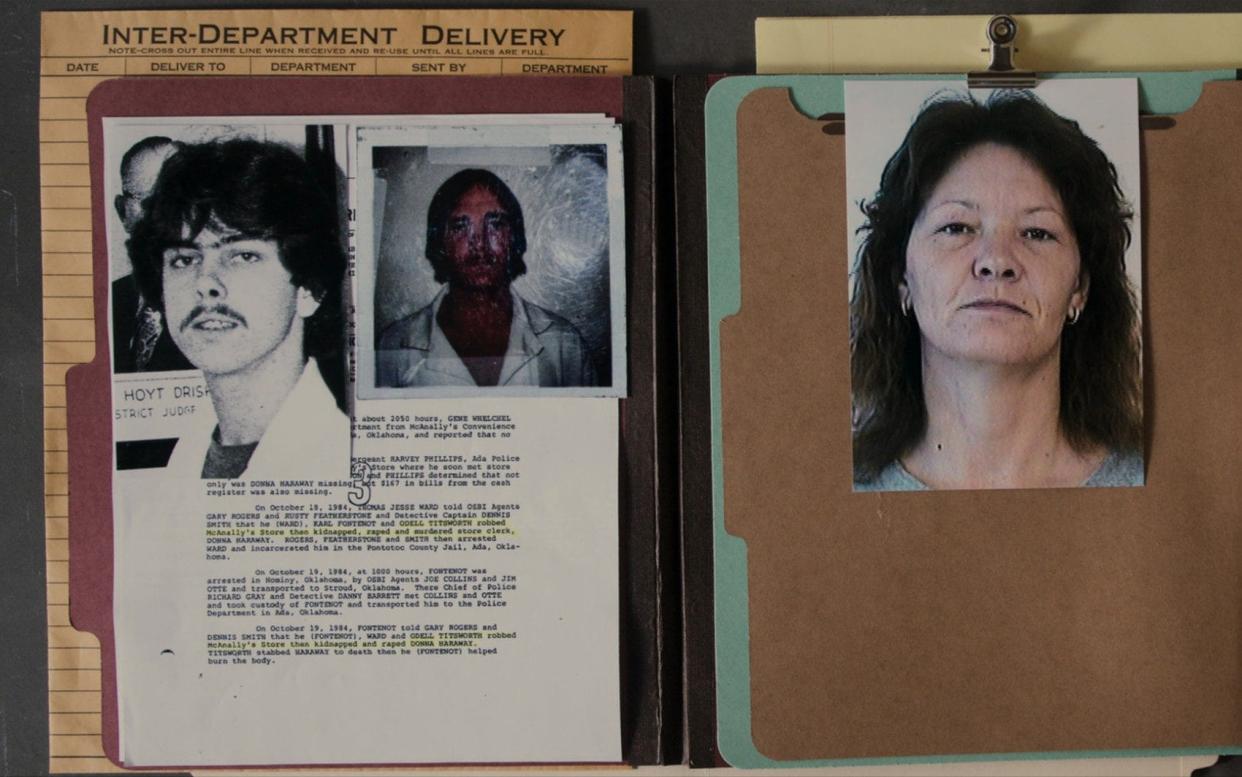The Innocent Man, Netflix review: based on John Grisham's book, this true crime series is a long slog to an admittedly wrenching payoff

Netflix has become a production line for true crime documentaries and the grisly formula is replicated with box-ticking thoroughness in its latest foray into the genre.
The Innocent Man chronicles the murder of two young women in sleepy Ada, Oklahoma in the early Eighties, the botched hunt for their killers and the wrongful convictions that inevitably ensued. Yet in seeking to forensically document the killings and the tangled webs trailing in their wake, the six-part adaptation of the John Grisham non-fiction bestseller bites off too much.
Where previous Netflix hits such as Making a Murderer and The Staircase drew the viewer in with a breadcrumb trail of exponentially more shocking revelations, The Innocent Man essentially dumps all the information in your lap and expects you to do the hard work. In its final two episodes, a fascinating portrait of an interweaving police conspiracy finally comes into focus – but it’s a long slog to this admittedly wrenching payoff.
To criticise a documentary for being insufficiently manipulative might seem a curious complaint. But The Innocent Man simply isn’t discerning enough in how and where it detonates its many bombshells. The results are more bewildering than gripping – as murky as the dense Oklahoma forest into which director Clay Tweel repeatedly sends his cameras to (presumably) build atmosphere.
That’s despite the brutality of the original killings. Cocktail waitress Debbie Sue Carter was found raped and strangled in her apartment in Ada in December 1982. Eighteen months later, convenience store attendant Denice Haraway was forcibly marched from her place of employment and driven into the night. It would be years before her body was discovered.

Geography aside, the deaths are not connected and Tweel errs in not making this clearer from the outset. Further muddying the picture is the interchangeability of the men accused of the crimes.
The suspects in the Debbie Sue Carter case are a pair of scruffy local ne’er do wells, one a frizzy-haired failed baseball star with substance abuse issues. In the Denice Haraway investigation, the spotlight likewise falls on two men from the wrong side of the tracks. The drawling accents, the drooping moustaches, the empty glares are almost identical.
Two victims, four (lookalike) suspects and a rotating cast of grieving family members and campaigning lawyers – plus John Grisham – add up to a lot of plates to keep spinning. The feat proves too much for Tweel, who struggles to pull off the (admittedly very difficult) task of splicing the separate narratives while making a wider point about truth and justice in the United States.
The Innocent Man doubles as a slightly overwrought inquiry into the soul of the “real” America. Here clichés are enthusiastically churned out – from the religiosity of the locals to the Smokey and the Bandit cadences of the cops.
The opening credits – a blur of soft-focused church steeples and menacing factory chimneys – even bear a passing resemblance to the title sequence of True Detective season one. But true crime cannot prosper on ambience alone. And in conjuring confusion rather than bringing clarity, The Innocent Man falls down where it matters.


